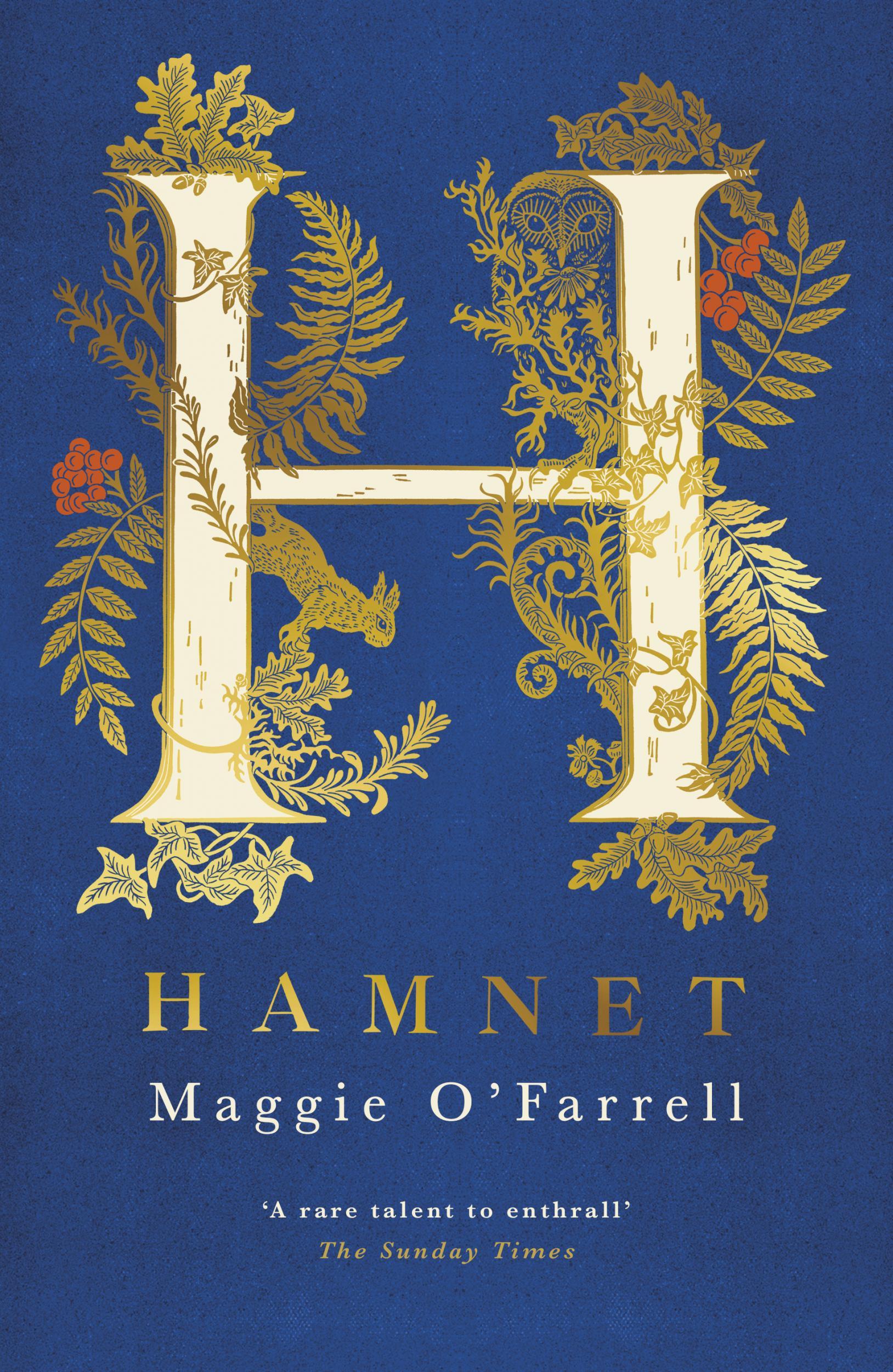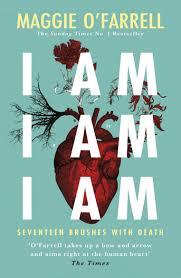Maggie O’Farrell: ‘I think Shakespeare resurrected his dead son as a 15-year-old in Hamlet. It’s heartbreaking’
The author’s latest novel, ‘Hamnet’, suggests the Bard’s son died of the plague. It was written before the coronavirus outbreak but, she tells Charlotte Cripps, plague is ‘in our cities, in our language and in the songs we sing our children’


I didn’t see it coming when I wrote it,” says Maggie O’Farrell of coronavirus and the uncanny parallels between the pandemic and her riveting new novel, Hamnet.
It’s set during the bubonic plague outbreak of the 1590s and is a profound study of love, grief and the fragility of life that lands just as the world is on red alert dealing with Covid-19.
Longlisted for the Women’s Prize for Fiction, Hamnet is the author’s eighth novel – and her first historical fiction. It puts the spotlight on William Shakespeare’s only son, Hamnet, who died from what some historians believe to have been the plague in 1596, aged 11.
Passages in the book that describe the fear of getting it, and being shut away indoors if you have symptoms, will strike a chord.
“The plague, as we call it, completely informed our relationship with contagion and infection,” says O’Farrell, on the phone from her home in Edinburgh. “It’s in our cities, it’s in our language, it’s in the songs we sing our children with ‘Ring a Ring o’ Roses’” – the “roses” it is suggested, may have been the red blotches on the skin that announced the bubonic plague – “so I think it’s very hard to get away from that when something as unprecedented as this pandemic happens; it speaks to all of us. We are automatically thinking of those history lessons. Our epigenetic memories of the Black Death are informing us now,” says the 47-year-old.

She’s currently on lockdown with her novelist husband, William Sutcliffe, their 16-year-old son and two daughters (7 and 11), whose names she prefers not to disclose. “It is scary,” she says. “But as a parent, it’s your job to spread the message that it is all going to be OK.”
O’Farrell is used to intense situations. Her middle child suffers from a life-threatening immune disorder that requires the family to be hyper-vigilant all the time. She suffers up to 15 extreme allergic reactions a year and this condition informs aspects of the novel. “You realise how easy it is for someone to slip over into that other state and die,” she says.
O’Farrell waited to write Hamnet until her own son was older than Hamnet was when he died aged 11, “so as not to tempt fate”.
“It is an odd superstition and slightly bonkers,” she says. “I knew I would have to put myself inside the skin of a woman who is sitting beside her child and he died. If I was to write those things I would be thinking about my own son and how that would feel. And I thought, ‘I cannot do that until he has gone past that age.’”
She writes about grief with unflinching precision; Shakespeare’s wife Anne Hathaway (known as Agnes) finds “the grave is a shock” and “she might disintegrate, break apart, like a raindrop hitting a leaf”. She couldn’t have written this book unless she was a parent, she says: “I think a huge amount of your love for a child is made up of a fear of loss. If you care about something or somebody deeply then it’s not a huge stretch of the imagination to imagine what it would be like to lose them.”
And she never mentions Shakespeare by name in the book. “It’s almost impossible to write ‘William Shakespeare sat up and ate his breakfast’ without feeling like a total idiot.
“Every time I thought about writing his name I was pulled out of the story. He carries so much expectation and baggage in the name. I wanted people to forget everything they think they know about him and his life and open themselves up to this fictionalised account of it.”
Hamnet is by no means all doom and gloom. O’Farrell wildly reimagines the playwright’s domestic life with his wife before their marriage is pushed to the brink by grief when Hamnet dies – about four years before the Bard wrote Hamlet.
This is a link that O’Farrell claims is no coincidence, especially when the name Hamnet and Hamlet were “entirely interchangeable” in Stratford records at the time.
“Calling a tragic hero after your dead son is not nothing,” she says.
O’Farrell’s style is almost otherworldly, as she shines a light on lurking primal fears. Whether it’s told through a gripping portrait of a marriage breakdown, such as in 2016’s This Must Be the Place, or in the fear and confusion of children whose father has mysteriously vanished in 2013’s Instructions for a Heatwave, she dives deep into human emotion, but with a lightness of touch.
She plays with time frames, as in her spellbinding 2010 Costa Award-winning The Hand That First Held Mine – a portrait of two mothers separated by 50 years – with breathtaking ease.
In her latest book, too, she flits between Hamnet’s short life and his parents’ backstory and how they met.
It’s a sexually charged romance, as they secretly meet in the barn where Agnes keeps a kestrel, amid the smell of apples. The 26-year-old Agnes has second sight and can cure illnesses with potions, and foresee the 18-year-old Shakespeare’s future potential just by squeezing his hand. She’s been unloved since her mother died, but “she’s ready to recognise love again when it comes” – which it does in the form of the gifted young Shakespeare.
Told through the prism of a fairy tale, the story turns Agnes into a sort of Cinderella/Red Riding Hood character. Her wild spirit feels at home in the forest “crazily cross-stitched with brambles and ivy”. But Shakespeare – who is referred to in the novel as the Latin tutor, son, brother, and later husband and father – is a “feckless, tradeless boy” according to Agnes’s cruel stepmother and as far as his abusively violent dad is concerned, he’s a “wastrel son”, so not an ideal partner for a woman with a dowry. But his father sees a good deal to be made in the union and somehow clears the way for marriage.
Agnes moves in with Shakespeare to a sort of annex next to his family home in Stratford-upon-Avon’s now-famous Henley Street, where “she is like a painting on the wall, eyes missing nothing”. They have three children – Susanna and the twins Judith and Hamnet. Once the illness jumps from Judith, who survives it, to Hamnet, the novel becomes a heart-rending account of bereavement for the whole family.
“I always thought that everybody rightly focuses on Shakespeare’s extraordinary career in London – but to me, I always think there is an enormous drama and tragedy that was completely acted out offstage in Stratford-upon-Avon that had untold consequences on all of them,” says O’Farrell.
She was always outraged that Hamnet was dismissed in biographies about Shakespeare and how it was assumed that child mortality at the time was so high that nobody grieved for them. When she reread Hamlet as she was writing the novel, she clearly saw Hamlet as 15 or 16 years old.

“He seems an exact portrait of that particular developmental stage in a teenager and it seemed to me to be saying very strongly that he, the playwright, had almost resurrected the boy. It’s heartbreaking.” But, she points out, it’s peculiar that Shakespeare doesn’t make a single reference to the plague in any of his works.
“I’ve often wondered why that might be,” she says. “It was a disease that completely shaped Elizabethan thinking and their lives. His professional life would have been disrupted many times. The first thing the authorities in London did when there was an outbreak was to shut all the theatres.”
O’Farrell herself suffered life-threatening illness as a child. At eight, she developed encephalitis – inflammation of the brain, usually caused by infection – and missed more than a year at school, after recovering in hospital. But, confined to bed, she read all the classics and found respite in writing from her stutter.
Born in Coleraine, Northern Ireland, to Irish parents, she grew up in Wales and Scotland, where she went to school in the seaside town of North Berwick, about 20 miles from Edinburgh, before reading English at Cambridge.
In her bestselling 2017 memoir I am, I am, I am: Seventeen Brushes with Death, she describes how surviving encephalitis set her on a perilous course in life – in it, she escapes a murderer, jumps off a harbour wall and suffers a traumatic labour.
“A lot of the brushes with death I had I can relate back to having that illness as a child – in both physical and psychological ways,” she says, while admitting she had “an unhealthy relationship to risk”.
“The doctor told me when I was young I would die – and I heard him saying that. I was also told that I would never walk again. I have managed to hoodwink both of those paths laid out for me, so I have always just wanted to seize life with both hands. It’s always felt like I was living on borrowed time, so I wanted to push it to the limits and make the most of the time I have.”
In 1996, at 24, she got a job as an arts journalist at The Independent on Sunday, and was promoted to deputy literary editor, before leaving to become a full-time novelist a few years later.
She had already begun writing her debut After You’d Gone, a family saga about loss and family ties “with the page-turning pace of a thriller” according to The Independent, which was published in 2000 and won the Betty Trask Award.
“I wanted to be a novelist, but I didn’t think it would ever happen,” she recalls. She had attended a residential writing course run by Arvon in 1996. Armed with about 20,000 words that would become her debut – but weren’t at the time “fit for publication” – she shyly showed it to her tutors, who were very encouraging. “They told me to finish it and said they would send it to their agent,” says O’Farrell, who was staying in a Yorkshire farmhouse where Sylvia Plath and Ted Hughes had once lived. Another misadventure ensued. “It was mid-winter and freezing cold. I was so excited that I ran out semi-naked and fell into a really deep ditch full of muddy water up to my chest – I had to scrabble out.”
Now, O’Farrell has written her first children’s book Where Snow Angels Go, which will be published this autumn by Walker Books. It stems from stories she used to send her children in letters when she was away on book tours.
I wonder if, over the course of her long career, she has experienced sexism in the literary world?
“A slight belittling,” she says, of meeting male writers at places like literary festivals. “Sometimes I meet other writers who want to put me down, but it doesn’t bother me. I have a thick skin. If somebody is going to be sexist, it’s their problem and their anger belongs to them and it doesn’t belong to me.”
She has juggled having kids with writing novels, but says having limited time “sharpens your concentration”.
Daydreaming is of particular importance to her, she says, and is the main reason she doesn’t engage with social media.
“I can see that to do social media well you have to invest quite a lot of time in it. I look at other people doing it. I can see it would devour daydreaming time.”
It’s easy to understand why she needed much of that while fictionalising the day-to-day life of Shakespeare and his family. As O’Farrell says about being pulled away from her desk by children: “There is always a little engine at the back of your head that is still working. A lot of very useful work does happen when you are looking the other way.”
Hamnet is published by Tinder Press, £20
Join our commenting forum
Join thought-provoking conversations, follow other Independent readers and see their replies
Comments